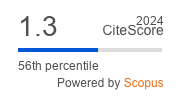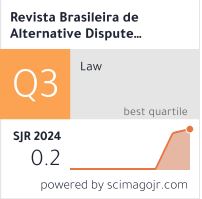Use of AI Technologies in Dispute Resolution at the Pre-Trial Stage and in Court Proceedings
Schlagworte:
Artificial intelligence, Litigation, Efficiency, Doubt, DecisionAbstract
Considering the orientation of the sphere of legal proceedings, the processes of digitalization and intellectualization create new difficulties for the subjects of procedural decision-making, which is based on the factor of doubt. Doubt allows filtering out disputable information or initiating further information search. The use of AI in legal procedures adds an element of doubt to their effectiveness: a decision maker aiming to resolve a dispute may accept the AI system’s suggestion or only consider it, which implies further verification. The study analyzes the directions and problematic points related to the integration of AI technology in judicial and expert activities of the Russian Federation and the People’s Republic of China, including the problems of presenting the output in the interface, the limits of error tolerance, AI independence, etc.
Literaturhinweise
Ludwig Wittgenstein, On Certainty. Blackwell, 1969.
Dmitry V. Bakhteev, ‘Category of doubt in the investigation process as a factor of achieving fair and sufficient facts of evidence’ (2014) 5 Criminalist’s Library: scientific journal p. 110-113.
Nassim Nicholas Taleb, ‘The Black Swan’ 545 (2019)
Ryan M. Harris, Using artificial neural networks for forensic file type identification: Master’s Thesis (West Lafayette, Indiana: Purdue University, 2007).
Dmitry V. Bakhteev and Roman O. Sudarikov, ‘NSP dataset and offline signature verification’ (2020) 1266 Communications in Computer and Information Science. DOI 10.1007/978-3-030-58793-2_4.
Katie Atkinson and Tevor Bench-Capon and Danushka Bollegala (2020) ‘Explanation in AI and law: Past, present and future’. 289 Artificial Intelligence. DOI: 10.1016/j.artint.2020.103387.
Alexander V. Macutchev, ‘Modern possibilities and limits of artificial intelligence introduction into the system’ (2022) 8 Actual problems of Russian law p. 47-58. DOI 10.17803/1994-1471.2022.141.8.047-058.
Lodder A., Zeleznikow J., ‘Artificial Intelligence and Online Dispute Resolution’. In Wahab M, Katsh
E, Rainey D, editors, Online Dispute Resolution: Theory and Practice. Den Haag: Eleven Publishers. 2012. p. 61-82.
Andrew V. Neznamov, ‘Using artificial intelligence at legal proceedings: first experiences and first conclusions’ (2020) 3 Russian Law: Education, Practice, Science. p. 32-39. DOI 10.34076/2410-2709-2020-32-39.
Dmitry V. Bakhteev and Lyudmila V. Tarasova, ‘The application of artificial intelligence in commercial courts of the Russian Federation: perspectives and issues’ (2021) 26 Vestnik of Kostroma State University p. 249-254. DOI 10.34216/1998-0817-2020-26-4-249-254.
Vasily Laptev, ‘Artificial intelligence in court: how it will work’ available at https://pravo.ru/opinion/232129/ (last visited on October 10, 2023).
Victor I. Kachalov, Oksana V. Kachalova, E. Elena V. Markovicheva, ‘Possibilities of using information technologies when making procedural decisions by the court in a criminal case’ (2022) 477 Bulletin of Tomsk State University p. 222-229.
Peter M. Morhat, ‘Possibilities, peculiarities and conditions of application of use of artificial intelligence in the legal practice’ (2018) 2 Court Administrator. p. 8-12.
Poskryakov R., ‘The use of artificial intelligence in judicial work’ (2019) 16 Ogaryov-Online. p. 2.
Victor V. Momotov, ‘Judicial Proceedings in Russia in the Context of New Digital Technologies’ (2023) The materials of the International Scientific and Practical Conference ‘Artificial intelligence and big data in the judiciary and law enforcement: realities and needs’. p. 267-271.
Oleg A. Stepanov, Denis A. Basangov, ‘On the prospects for the impact of artificial intelligence on judicial proceedings’ (2022) 475 Bulletin of Tomsk State University. p. 229-237. DOI 10.17223/15617793/475/28.
Victor V. Momotov, ‘Prospects for the use of artificial intelligence in the judicial system of the Russian Federation’ available at http://www.ssrf.ru/news/lienta-novostiei/36912 (last visited on October 15, 2023)
Peter M. Morhat, ‘Use of artificial intelligence in the administration of justice as a way of overcoming judicial discretion’ (2018) 5 Law and State: Theory and Practice. p. 6-11.
S. Yassine, M. Esghir, and O. Ibrihich, ‘Using Artificial Intelligence Tools in the Judicial Domain and the Evaluation of their Impact on the Prediction of Judgments’ (2023) 220 Procedia Comput. Sci. p. 1021–1026. https://doi.org/10.1016/j.procs.2023.03.1422023.
Drzhevetsky Y., ‘Expert systems as an Applied Field of Artificial Intelligence’ (2011) 1 Proceedings of the International Symposium ‘Reliability and Quality’. p.152-154.
‘On the results of the IX Perm Congress of Legal Scholars ‘Legal regulation of digitalisation of society: priority tasks’’ Lex Russica, no. 12 (145), 2018, pp. 161-174.
Alex Sugar, ‘In the framework of PMJF, the prospects for automation of court proceedings were considered’ available at https://www.advgazeta.ru/novosti/v-ramkakh-pmyuf-rassmotreliperspektivy-avtomatizatsii-sudoproizvodstva/ (last visited on October 10, 2023).
Victor V. Momotov, “Electronic Justice in the Russian Federation: Myth or Reality” available at http://www.ssrf.ru/news/vystuplieniia-intierv-iu-publikatsii/42272 (last visited on October 10, 2022).
Vyacheslav Lebedev, ‘The experience of digitalisation of Moscow SJCs will be disseminated throughout Russia’ available at https://pravo.ru/news/249095/ (last visited on October 16, 2023).
JI, W., ‘The Change of Judicial Power in China in the Era of Artificial Intelligence’ (2020) 7(3) Asian Journal of Law and Society. p. 515-530. doi:10.1017/als.2020.37.
Rusakova, Ekaterina, ‘Integration of “smart” technologies in the civil proceedings of the People’s Republic of China’ (2021) 25 RUDN Journal of Law. p. 622-633. DOI: 10.22363/2313-2337-2021-25-3-622-633.
‘‘Who are the judges?’: how artificial intelligence helps humans in court’ available’ at https:// sk.ru/news/a-sudi-kto-kak-iskusstvennyj-intellekt-pomogaet-cheloveku-v-sude/ (last visited on October 16, 2023).
Evgeny V. Dragilev, Lyudmila L. Dragileva, Lyudmila S. Drovaleva, Sergey A. Palamarchuk, ‘Informatisation of the Judicial System of China’ (2022) 8 Juridicheskaya nauka. p. 54-59.
Irina V. Khoroshko, ‘Foreign experience of the electronic form of civil proceedings on the example of the Republic of Singapore and the People’s Republic of China: the history of origin and current state’ (2022) 2 Man: Crime and Punishment. p. 183-187. – DOI 10.33463/2687-1238.2022.30(1-4).2.183-187.
Alexander F. Rekhovsky, ‘Use of Artificial Intelligence in Chinese Criminal Procedure’ (2021) Technologies of the XXI century in Jurisprudence: Proceedings of the III International Scientific and Practical Conference. p. 69-77.
Azizbek Atazhanov and Bahadir Ismailov (2020). Foreign experience of introducing modern technologies in the justice system. Society and Innovation, 1 (2/S), 269-284. doi: 10.47689/2181-1415-vol1-iss2/S-pp269-284.
Victor V. Momotov, ‘The Supreme Court believes robots can never replace a judge’ available at https://tass.ru/obschestvo/6296926 (last visited on October 15, 2023).
Irina A. Umnova-Konyukhova, ‘The judiciary and Artificial Intelligence: The Legal Aspects of Interaction’ (2021) 1 Social and Humanities. Domestic and foreign literature. Series 4: State and Law. p. 106-114. – DOI 10.31249/rgpravo/2021.01.11.
Anton Vasilyev, Transformation of Law in the Digital Age. 2020.
Vasily. Y. Fedorovich, Olga V. Khimicheva, Alexey V. Andreev, ‘Introduction of informatisation technologies and artificial intelligence technologies as prospective directions of development of modern criminal proceedings’ (2021) 2Vestnik Moscow University of the Ministry of Internal Affairs of Russia. p. 205-210. DOI 10.24412/2073-0454-2021-2-205-210.
Maya D. Zhuravleva, ‘On the introduction and use of artificial intelligence systems in civil proceedings’ (2021) 1 Humanities and Political and Legal Studies. p. 20-28. DOI 10.24411/2618-8120-2021-1-20-28.
Elena V. Alferova, ‘Algorithmized decision making and the right to interpret it’ (2021) 1 Social and Humanities. Otechestvennaya i zarubezhnaya literatura. Series 4: State and Law. p. 49-61. DOI 10.31249/rgpravo/2021.01.05.
Han-Wei Liu, Ching-Fu Lin, Yu-Jie Chen, ‘Beyond State v Loomis: artificial intelligence, government algorithmization and accountability’ (2019) 2 International journal of law and information technology. p. 122-141.
Ran Wang, ‘Legal technology in contemporary USA and China’ (2020) 39 Computer Law & Security Review. doi.org/10.1016/j.clsr.2020.105459. https://www.sciencedirect.com/science/article/pii/S0267364920300649.
Downloads
Veröffentlicht
Ausgabe
Rubrik
Lizenz

Dieses Werk steht unter der Lizenz Creative Commons Namensnennung 4.0 International.
No royalties or other compensation shall be due for the publication of the works.
The opinions expressed by the authors of the articles and reviews are their sole responsibility.









